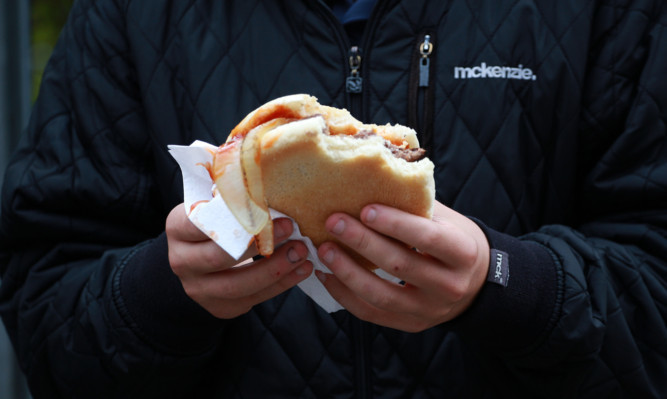Burger vans could soon be banned from trading near schools in Fife in a bid to improve children’s diets.
Fife Council confirmed it is considering introducing exclusion zones around schools for mobile traders. Other local authorities in Scotland have already banned street vendors from pitching near schools.
Both Renfrewshire and Falkirk councils operate 500 metre exclusion zones around schools, in which street traders are prohibited from operating at lunchtimes and at the start and end of the day.
Health experts say efforts to improve the diet of Scotland’s schoolchildren by providing healthy school meals are being undermined by the availability of low cost, unhealthy alternatives, such as burgers, hotdogs and chips near schools.
Fife councillors debated the issue at a recent meeting of the region’s regulation and licensing committee.
Vice-chairman Tom Adams said: “We want to encourage young people to choose healthy eating options when they are at school.
“We discussed a report on the issue of food vans near schools and are considering the possibility of introducing exclusion zones round schools in line with other local authorities.”
A survey conducted in 2008 found that a high proportion of Fife secondary school pupils went outwith the school gates for lunch and were prepared to walk some distance to do so.
While local authorities have little power to influence the type of food being sold by shops, cafes and restaurants, they are responsible for issuing and setting the terms of licenses for street traders.
The report discussed by the committee was prepared by specialty registrar in public health, Dr Philip Conaglen, and consultant in public health medicine, Dr Jackie Hyland, on behalf of Fife Food and Health Group, a collaboration of NHS Fife, Fife Council and the voluntary sector.
It said: “Achieving our longer term goals of improving the diet of young people and curbing childhood obesity will require a broader suite of interventions.
“However, a relatively simple change in licensing regulations would signal a clear direction of travel in this area.”
An exclusion zone may be open to legal challenge, it warned, but the successful implementation of similar restrictions in other areas could be seen as “proof of principle.”
